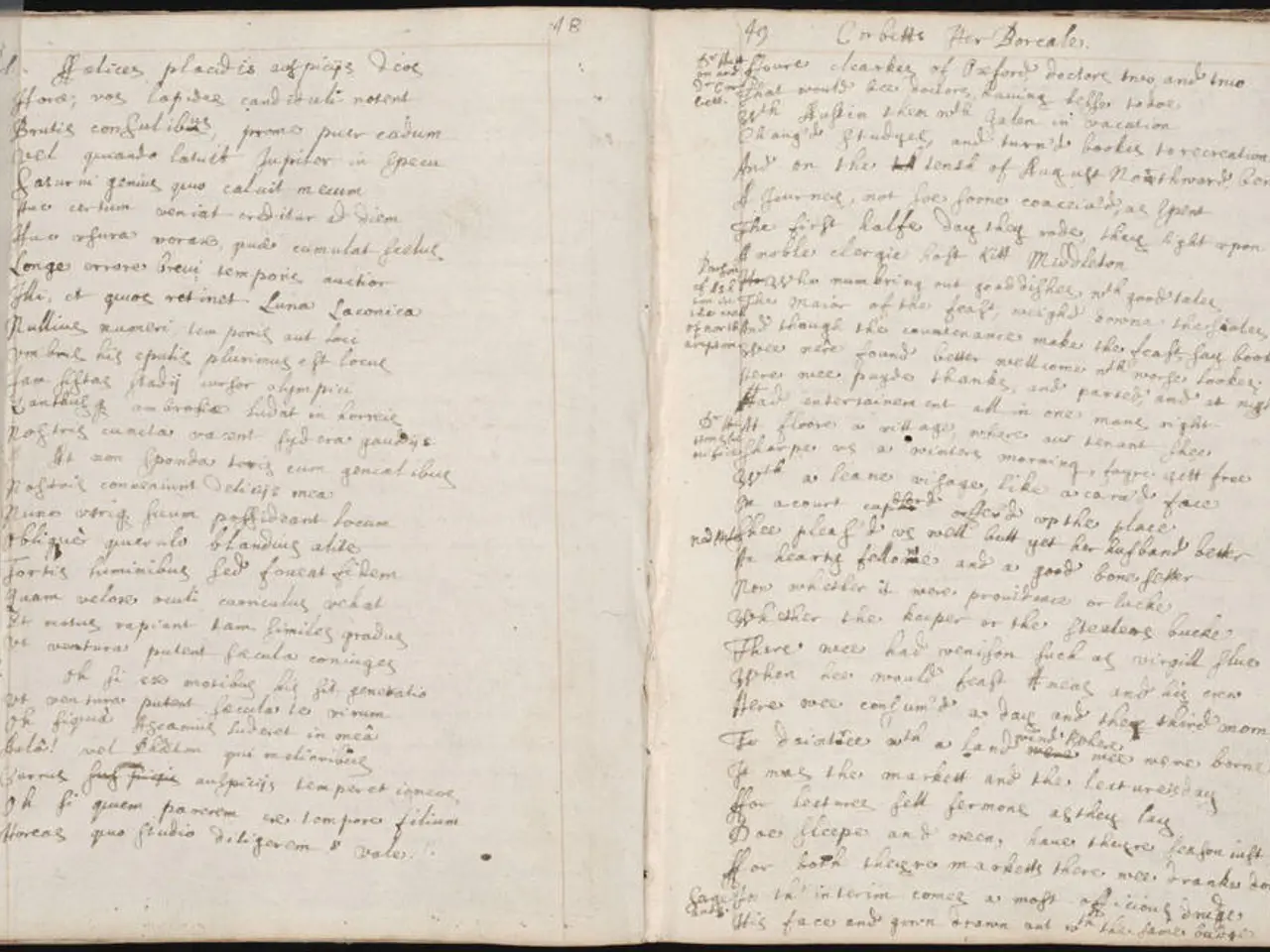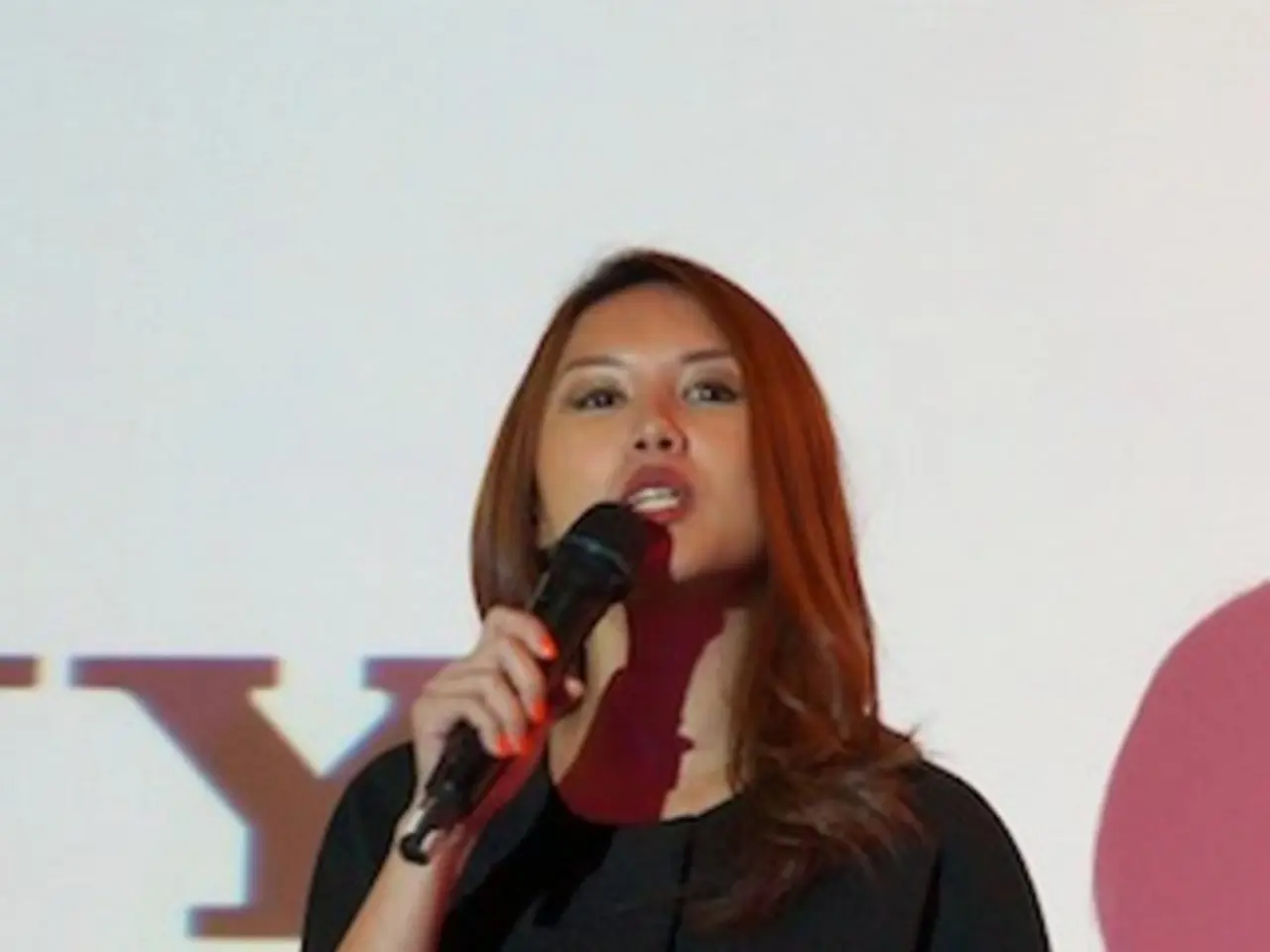Bridging the Divide: Yoko Tawada's Connecting Efforts
In the intriguing essay collection, Exophony by Yoko Tawada (trans. Lisa Hofmann-Kuroda), the author delves into the complexities of language, identity, and cultural hybridity. The book, available from New Directions, is a must-read for those interested in these themes.
Tawada, a German resident and a renowned rule-breaker, is known for her unconventional approach to language and culture. Her writing style, immediately recognisable to her fans, is seductively strange, interlingual, and metamorphosis-driven.
Exophony is a rich tapestry of ideas, roaming through various topics including a literary conference in Dakar, Japanese Kleist translations, the afterlives of colonialism in Asia, Swiss minority languages, and the radical potential of punning.
One of the most intriguing aspects of Exophony is Tawada's exploration of the concept of dwelling inside borders rather than crossing them. This theme is particularly evident in her examination of language and its relationship to power, colonialism, and history. Tawada's mission, as she realised after the 'Brücke-Lücke' mixup, is not to build bridges but rather to explore gaps.
The collection contains a memorable sequence of riffs on German words, a testament to Tawada's playful rewriting of rules instead of breaking them. This fusion of words, born out of her initial struggle to distinguish between 'R' and 'L' sounds in German, resulted in a unique merger of 'Brücke' (bridge) and 'Lücke' (gap).
Exophony also challenges notions of linguistic purity, emphasising the fluid, mutable nature of language and its connection to cultural experience. Tawada highlights multilingualism as a "magic net" through which different languages can interact and expand meaning, as seen in her reflections on poetry that transcends linguistic boundaries.
The essays in Exophony interrogate how language shapes personal and collective identity, illustrating how writers and speakers adapt or reject languages imposed by historical or political forces, such as colonialism. The collection covers the afterlives of colonialism in Asia, providing a thought-provoking exploration of its impact on language and identity.
In summary, Tawada's thematic focus in Exophony is on the interplay between language and identity, emphasising linguistic diversity, exile from one's mother tongue, and the creative potential found in language crossing and mutation. This reflects her broader literary engagement with borders, cultural hybridity, and the power dynamics embedded in language use.
Tawada's literary exploration in Exophony extends beyond language and identity, delving into the realm of entertainment as she imagines a Japanese Kleist translation, perhaps adding a fresh, unconventional twist to classical literature. Moreover, for avid readers seeking a broader perspective on lifestyle and cultural hybridity, this book is filled with insights gained from discussions on various topics, including books and the radical potential of punning.








